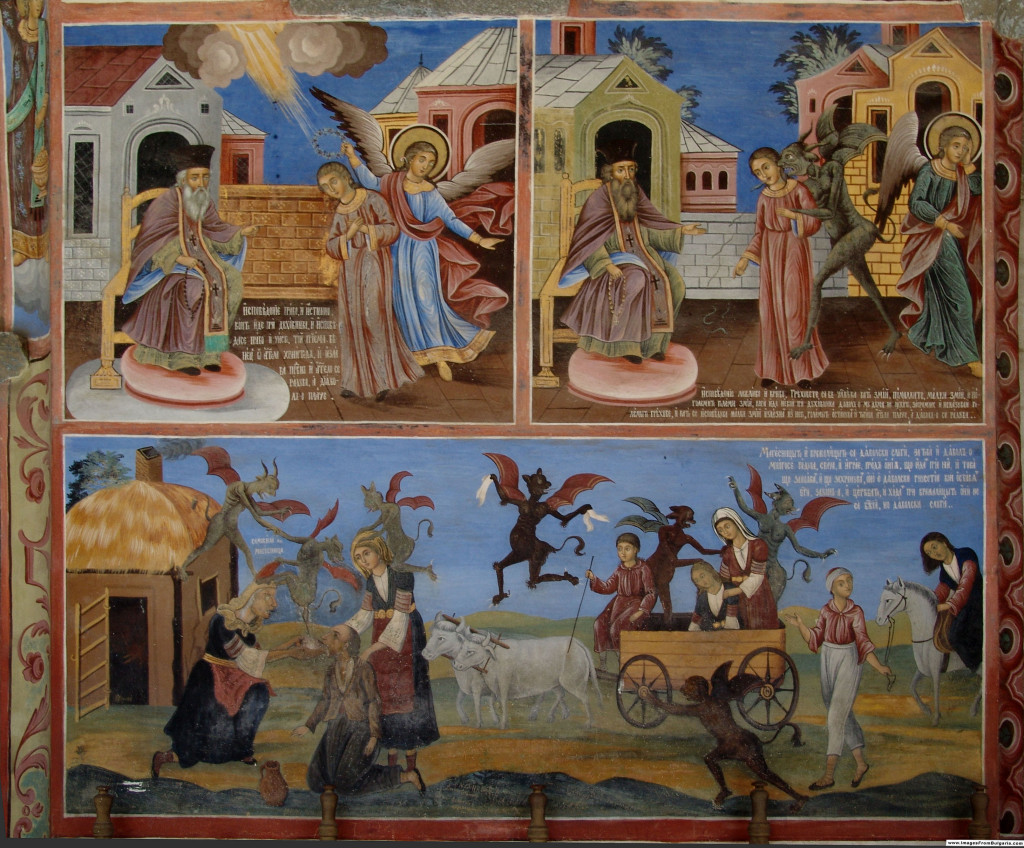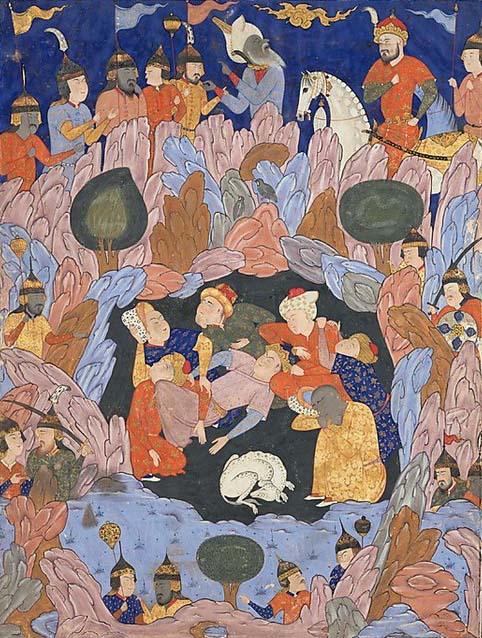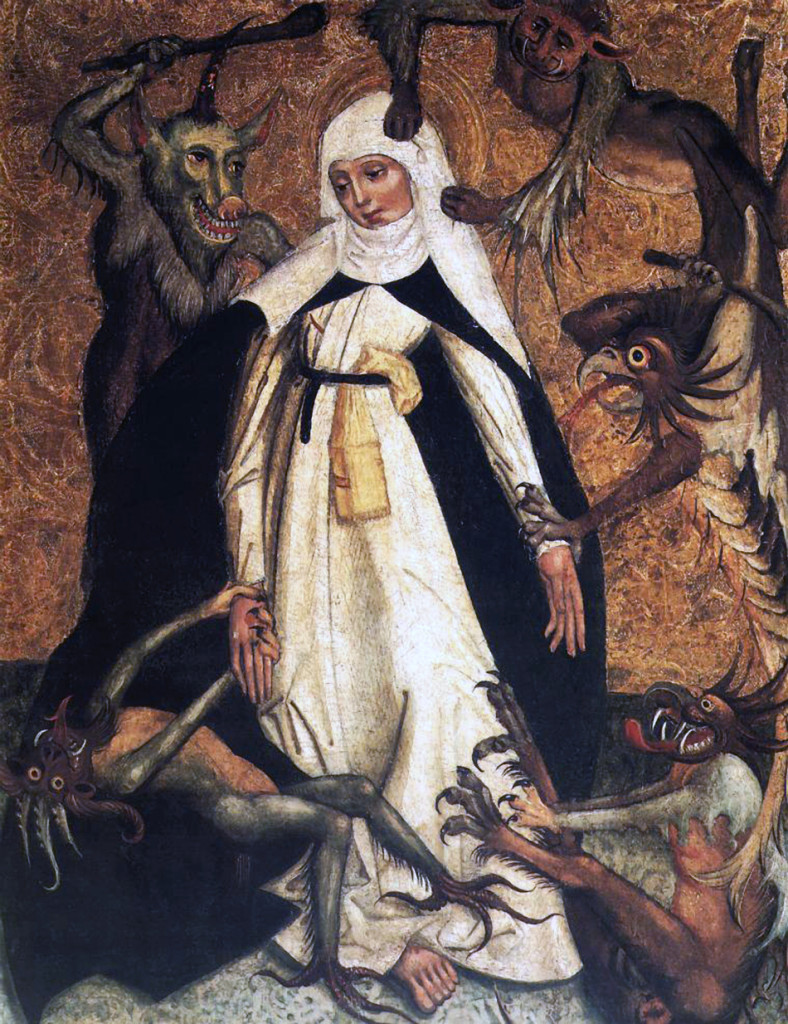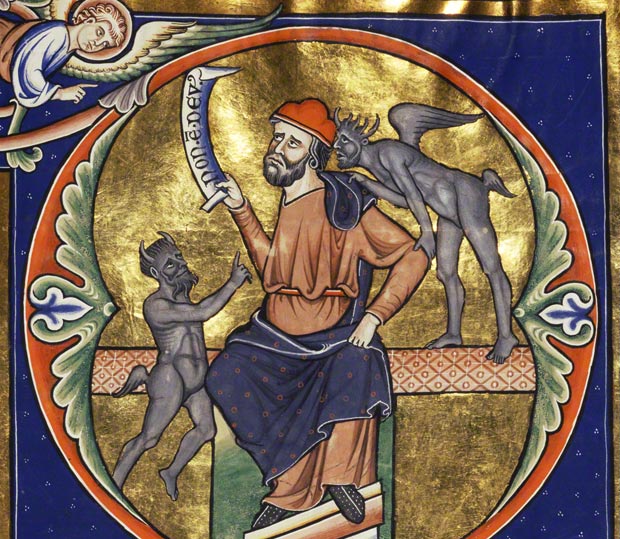Throughout the Middle Ages the clergy and general populace persecuted and disposed of foreign, eccentric or difficult individuals (usually women) by accusing them of demonic possession and/or and witchcraft. In The Infidel’s Garden, Marjit, being exotic-looking, outspoken and the product of a foreign religion, is a prime suspect.

Islam during this period, with its more advanced grasp of medicine, agriculture, and architecture (and widespread use of some of the first flushing toilets) had many Christian detractors. Having its own prophet; whom Muslims regarded as superseding Jesus didn’t help. Indeed, Islam says Jesus’s promise to return like a ‘thief in the night’ was fulfilled by the arrival of Muhammad. Inflammatory stuff for Christians who believe Christ is yet to return. Which is why, in The Infidel’s Garden, some Christians referred to Allah (which is just another name for God) as the ‘Muslim devil god.’

The medieval church believed witches were shape-shifters, time-travelers, disease- spreaders, seducers, spreaders of corruption and propagators of misery. Accusing a woman of seduction and bewitchment was also a very handy way for a rapist, monk with lapsed vows of celibacy (or, in the case of Gerrit, a reluctant father), to avoid personal responsibility.
In The Infidel’s Garden, our morally bankrupt cleric Archdeacon Solin points out this:
“Women are after all, imperfect men, and more easily succumb to the temptation of the dark arts.”
The less educated people were, the more likely they would believe all this crap, so women like Marjit with her exotic looks (full lips for example, were considered to be a sign of a lecherous nature) had to be particularly careful. Marjit’s best friend Sister Beatrice reminds her of this when a group of Abbeys of Misrule (essentially a gang of teenage bullies – perhaps the medieval equivalent of skinheads) arrive in the marketplace.
After the Abbey of Misrule has pushed marrow-woman into her baskets of vegetables, accusing her of being ungodly and even worse – ugly – he dusts marrow pith from his robes and once more shouts at the gawping onlookers. “Those who deny the power of our Lord will be flogged!”
“Marjit,” hisses Sister Beatrice, “you need to get out of here!”
I hesitate. “What about you?” And what about your confession? I want to add.
Sister Beatrice flicks her hand at me. “Go Marjit! I’m a nun. They won’t dare harass me. But you …” uneasily, she regards my loose, long black hair. “You’re a sitting duck!”
A smart and beautiful woman of low social standing like Marjit faced constant harassment and limited and unsavoury career options; an uncomfortable truth Archdeacon Solin, with his warped agenda, articulates when he argues with Mother Geertruyt about Marjit’s character.
“Bah! Studying the Bible doesn’t mean understanding it. A young woman like that can’t change her ways. One doesn’t forget the folly of the dark arts. Wantonness is in her blood. And so is witchcraft. Even a fool can see it. It’s written in the way she walks, the shape of her nose, the colour of her skin and eyes.”
Islam of course, wasn’t much better when it came to women and their relationship with the divine. Here, Atiq, Archdeacon Solin’s Muslim counterpart, expresses his own views on the topic of women and religion.
“Enough! We will not be lectured to by a woman! No woman is capable of the deep and constant deliberation necessary to understand the profound messages of the Qu’ran!”

With many mysteries of nature still to be unravelled, even followers of the more rational Islam succumbed to fanaticism and superstition. Jinns – free-willed supernatural creatures of sometimes good and sometimes evil intentions – were often blamed for madness and base desires. The Muslim devil Iblis, although being rather less corporeal than the Christian devil, was also believed to be an entity capable of inciting humans to commit corrupt and wicked deeds. In Islam’s case, however, one didn’t have to wait until one was dead to encounter hell. Or as Marjit puts it:
The devil I know is more subtle than this Christian creation. The Muslim devil Iblis, hewn from smokeless flame, is not a punisher, but a whisperer and seducer, tempting those who listen to make mistakes that damn them in this life.

More on the whole damned business of demons and witchcraft here:

